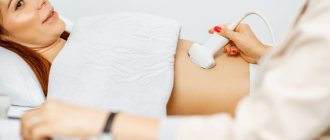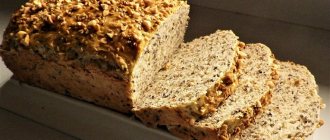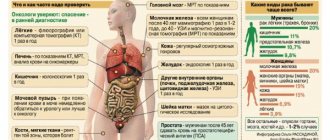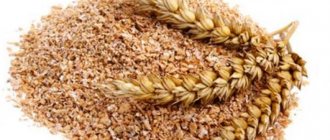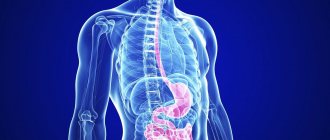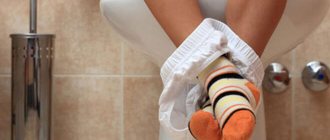Preparation for analysis: Feces
List of instructions:
- Instructions for collecting stool
- Instructions for collecting stool during occult blood testing
- Instructions for collecting stool for dysbacteriosis
- Instructions for collecting stool for the study of pathogenic intestinal flora
Instructions for collecting stool
We draw attention to the need to use a special container with a screw cap and a spoon, which can be purchased in advance at any INVITRO medical office or in a pharmacy chain.
Preparing for the study:
It is recommended to discontinue medications (all laxatives, vago- and sympathicotropic drugs, kaolin, barium sulfate, bismuth, iron preparations, fat-based rectal suppositories, enzymes and other drugs that affect the processes of digestion and absorption).
You cannot conduct scatological studies after an enema.
After an X-ray examination of the stomach and intestines, stool analysis is indicated no earlier than two days later.
It is advisable to use the following diet: milk, dairy products, cereals, mashed potatoes, white bread with butter, 1 - 2 soft-boiled eggs, some fresh fruit. Such food is given for 4 - 5 days, feces are examined on days 3 - 5 (subject to spontaneous bowel movement).
Procedure for collecting material:
- Feces are collected after the act of natural bowel movement on a clean surface. When using a bedpan or pot, wash the container well with soap and water first. Rinse repeatedly with running water. Pour boiling water over. Dry. Do not use disinfectants.
- Take a sample in an amount of 1/3 of the container volume.
- Close the container lid tightly.
- You should avoid mixing urine and genital secretions into your stool. It is unacceptable to collect feces from a fabric surface, from diapers, or from the toilet.
- The container must indicate your last name, initials, date of birth, date and time of collection of the material, the entry must be made in legible handwriting.
The material must be delivered to the INVITRO medical office as quickly as possible on the day of collection (according to the biomaterial reception schedule).
Before dispatch, the material must be stored in the refrigerator at +2...+8°C, not frozen. Instructions for collecting stool during occult blood testing
The material for research is delivered in a special container with a screw cap and a spoon, which must be purchased in advance at any convenient INVITRO medical office or in a pharmacy chain.
Preparing for the study:
It is recommended to discontinue laxatives, vago- and sympathicotropic drugs.
If you are using drugs that increase the risk of bleeding (for example, non-steroidal anti-inflammatory drugs), you should discuss the procedure for conducting the study with your doctor.
When testing for occult blood, all patients examined 3 days before taking the sample must adhere to a diet that excludes foods containing iron (meat, fish, tomatoes, bell peppers, apples, all green vegetables, liver, caviar, pomegranates, buckwheat, etc.). d.). It is also necessary to avoid taking iron-containing medications.
Eating these foods may give a false-positive result (a special diet is not required to test for fecal occult blood using the quantitative immunochemical method). If there is bleeding from the gums, the patient should not brush his teeth during the entire period of preparation for the study. Mouth rinse only is recommended.
The study should not be carried out within 2 weeks after instrumental studies of the gastrointestinal tract or medical procedures that can cause mechanical damage to the mucous membrane (for example, colonoscopy, sigmoidoscopy, bowel cleansing with enemas, etc.). And no earlier than two weeks after an X-ray examination of the stomach and intestines.
Procedure for collecting material:
- The stool should be obtained without an enema or laxatives. You cannot collect feces from the toilet. Collect feces on a clean surface, which can be a dry, clean sheet of paper, polyethylene, or oilcloth. When using a medical vessel or pot, first wash the container well with soap and rinse several times with running water. Pour boiling water over. Dry. Do not use disinfectants.
- After defecation, take a stool sample in the amount of 5-10 grams (one teaspoon, but not more than 1/3 of the container volume) and close the lid. Make sure the container lid is screwed on tightly.
Deliver to the nearest INVITRO medical office on the day of collection (according to the schedule for receiving the biomaterial).
Before dispatch, the material must be stored in the refrigerator at +2...+8°C, not frozen. Instructions for collecting stool for dysbiosis
We draw attention to the need to use a special container with a screw cap and a spoon, which can be purchased in advance at any INVITRO medical office or in a pharmacy chain.
Preparing for the study
The material (stool) is collected before the start of antibacterial therapy and taking immunomodulators, or 12-14 days after the end of taking the drugs.
3-4 days before the study, it is necessary to stop taking laxatives, castor and vaseline oil, and stop administering rectal suppositories. Feces obtained after an enema, as well as after taking barium (during X-ray examination) are not used for research.
1-3 days before taking the sample, you must follow a diet that excludes foods that enhance fermentation processes in the intestines, lactic acid products, alcohol, antibiotics and bacterial preparations (containing bifidobacteria, lactobacilli, E. coli, etc.).
Before collecting the test, urinate in the toilet.
Procedure for collecting material:
- Feces are collected after the act of natural bowel movement on a clean surface. When using a bedpan or pot, wash the container well with soap and water first. Rinse repeatedly with running water. Pour boiling water over. Dry. Do not use disinfectants.
- Take a sample in an amount of 1/3 of the container volume.
- Close the container lid tightly. You should avoid mixing urine and genital secretions into your stool.
In the referral form, indicate the diagnosis and date of onset of the disease, information about taking antibiotics.
Conditions that must be observed:
- freezing is not allowed;
- long-term storage is not allowed;
- biomaterial collected the day before is not subject to examination;
- A container that is not tightly closed is not allowed.
The material is delivered to the INVITRO medical office as quickly as possible, within 2 hours from the moment the analysis is collected (according to the schedule for receiving the biomaterial).
Instructions for collecting stool for the study of pathogenic intestinal flora
To collect stool, you must purchase in advance at any medical office of the Independent Laboratory INVITRO a special container with Cary-Blair transport medium (CrKB) and a swab on the applicator.
The transport medium ensures the safety of the biomaterial and makes it possible to bring feces to the laboratory at a time convenient for the patient.
Preparing for the study:
The material (stool) is collected before the start of antibacterial therapy and taking immunomodulators, or 12-14 days after the end of taking the drugs.
3-4 days before the study, it is necessary to stop taking laxatives, castor and vaseline oil, and stop administering rectal suppositories. Feces obtained after an enema, as well as after taking barium (during X-ray examination) are not used for research.
1-3 days before taking the sample, you must follow a diet that excludes foods that enhance fermentation processes in the intestines, lactic acid products, alcohol, antibiotics and bacterial preparations (containing bifidobacteria, lactobacilli, E. coli, etc.).
Before collecting the test, urinate in the toilet.
Procedure for collecting material:
- You cannot collect feces from the toilet. Collect feces on a clean surface, which can be a dry, clean sheet of paper, polyethylene, or oilcloth. When using a medical vessel or pot, first wash the container well with soap and rinse several times with running water. Pour boiling water over. Dry. Do not use disinfectants.
- When collecting stool, avoid contaminants of urine and genital secretions.
- After defecation, take a sample by immersing a tampon in feces in several places one by one (important: be sure to immerse it in places with mucus, pus, etc.) and transfer the material to the hospital. Leave the swab in the container and close the lid tightly. There is no need to place pieces of stool into a test tube.
If it is impossible to collect stool for examination, you can take a rectal smear. Rectal swab collection is performed by trained medical personnel.
Deliver to the nearest INVITRO medical office on the day of collection (according to the schedule for receiving the biomaterial).
Before dispatch, the material must be stored in the refrigerator at +2...+8°C, not frozen.
It is possible to defeat parasites!
Antiparasitic Complex® - Reliable and safe removal of parasites in 21 days!
- The composition includes only natural ingredients;
- Does not cause side effects;
- Absolutely safe;
- Protects the liver, heart, lungs, stomach, skin from parasites;
- Removes waste products of parasites from the body.
- Effectively destroys most types of helminths in 21 days.
There is now a preferential program for free packaging. Read expert opinion.
Read further:
Why take an enterobiasis test for a swimming pool certificate: rules, deadlines and instructions
Worms during pregnancy: what to do in the early stages, effects on the fetus, how to treat
Who do viruses belong to: bacteria or intracellular parasites?
How to effectively treat opisthorchiasis.
At what temperature do the eggs of worms (roundworms) and pinworms die?
Cucurbitin: what products contain it and which one has an effect on worms
Detection of Helicobacter pylori DNA
Helicobacter is a bacterium that colonizes the stomach and has been proven to be the cause of gastritis, peptic ulcers and some cancers. The Helicobacter test is a mandatory condition for diagnosing these conditions according to modern requirements.
There are several ways to detect Helicobacter pylori. Examination of stool for the genetic material of bacteria using the PCR method is one of the least invasive of them, and therefore can be recommended, for example, for a child or the elderly.
Preparing for the study is no different from preparing for a general stool test.
Culture for the intestinal group: for pathogens of dysentery and salmonellosis
To identify pathogens in acute intestinal disorders, stool is cultured for pathogens, including disgroup. The essence of the study is to grow colonies of pathogens on nutrient media, during which their sensitivity to various antibiotics is also determined.
Pathogenic flora are microbes that are not normally found in the intestines. When they enter the body, they usually cause disease.
It should be remembered that antibacterial drugs can, to some extent, make it difficult to identify pathogenic microorganisms, since their concentration can decrease to very low values. Therefore, if possible, antibiotics are prescribed after stool examination. Otherwise, the principles of preparing for analysis are no different from the generally recommended ones.
Useful tips and recommendations from nutritionists
During the diet, you should not break down and consume prohibited foods.
In the best case, you will have to re-test your stool; in the worst case, the doctor will make the wrong diagnosis, choose the wrong treatment and harm you. Avoid both overeating and fasting. You should not feel heaviness in your stomach. If there are no kidney problems, drink 1.5-2 liters per day. This will help remove some of the toxins from the body. It will be easier for the doctor to correctly assess the functioning of the gastrointestinal tract.
It is advisable to temporarily avoid excessive physical activity. Quiet walks in the fresh air are encouraged.
The diet before taking the test is followed for 3-5 days.
You cannot increase this period on your own, only for medical reasons and after the doctor’s permission. After collecting stool, you are allowed to return to your usual menu, but it is better to do this gradually so as not to provoke digestive disorders. First, stop chopping food. Then fermented milk products, raw vegetables and fruits are returned to the menu. At the end, meat and fish are introduced into the diet. You cannot follow a preparation diet for a long time, since it is not complete. The body cannot get all the vitamins and minerals it needs from the permitted set of foods. Long-term dieting leads to a deficiency of proteins and fats.
Taking blood for research
Many factors can influence the result of a blood test, so it is recommended to refrain from taking medications before taking biomaterial. It is also often advised not to even eat food. If it is almost impossible to predict the effect of medications on the body, then due to the absorption of food components, after taking it, it guarantees a shift in hormone levels or deprives the sample of transparency.
Physical overload before analysis can lead to both biochemical and hormonal changes, and alcohol has acute and chronic effects on metabolism and its processes. Smoking, the menstrual cycle in women, receiving physiotherapeutic procedures, time of day, and so on can also affect the result.
Recommendations that should be taken into account when taking blood biomaterial for analysis.
- It is best to take the test in the morning before 10:00. Before taking blood, do not eat for about 8 hours, but do not allow more than 14 hours of bowel rest. You can drink as usual.
- When taking a course of medications, you should consult with your doctor about the need for analysis during this period. Or find out whether it is possible to stop taking medications before taking biomaterial.
- Stop drinking alcoholic beverages at least a day before. Stop smoking for an hour before blood sampling.
- The results of the analysis may be influenced by physical activity and emotional overload. Therefore, they are also advised to be excluded.
